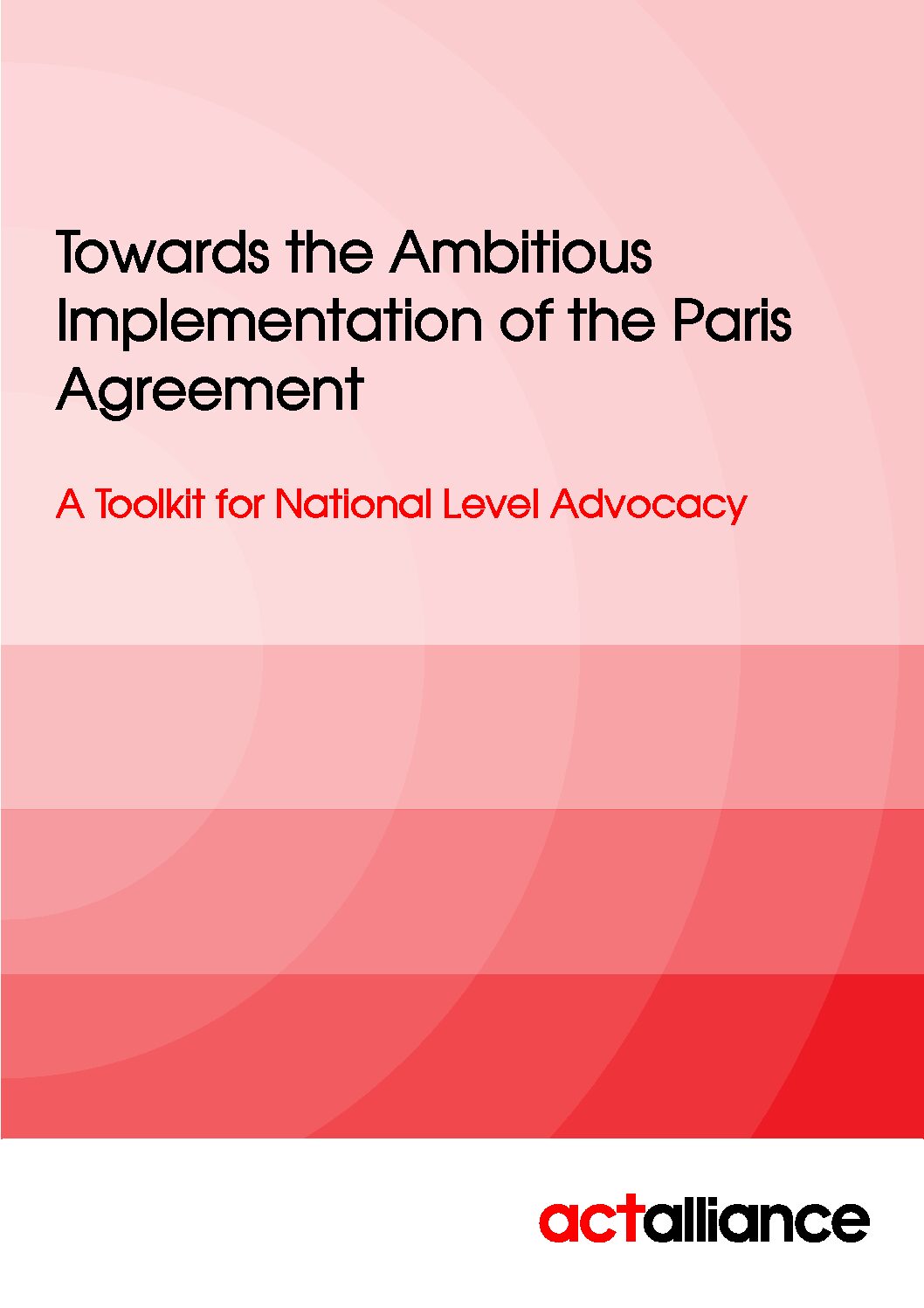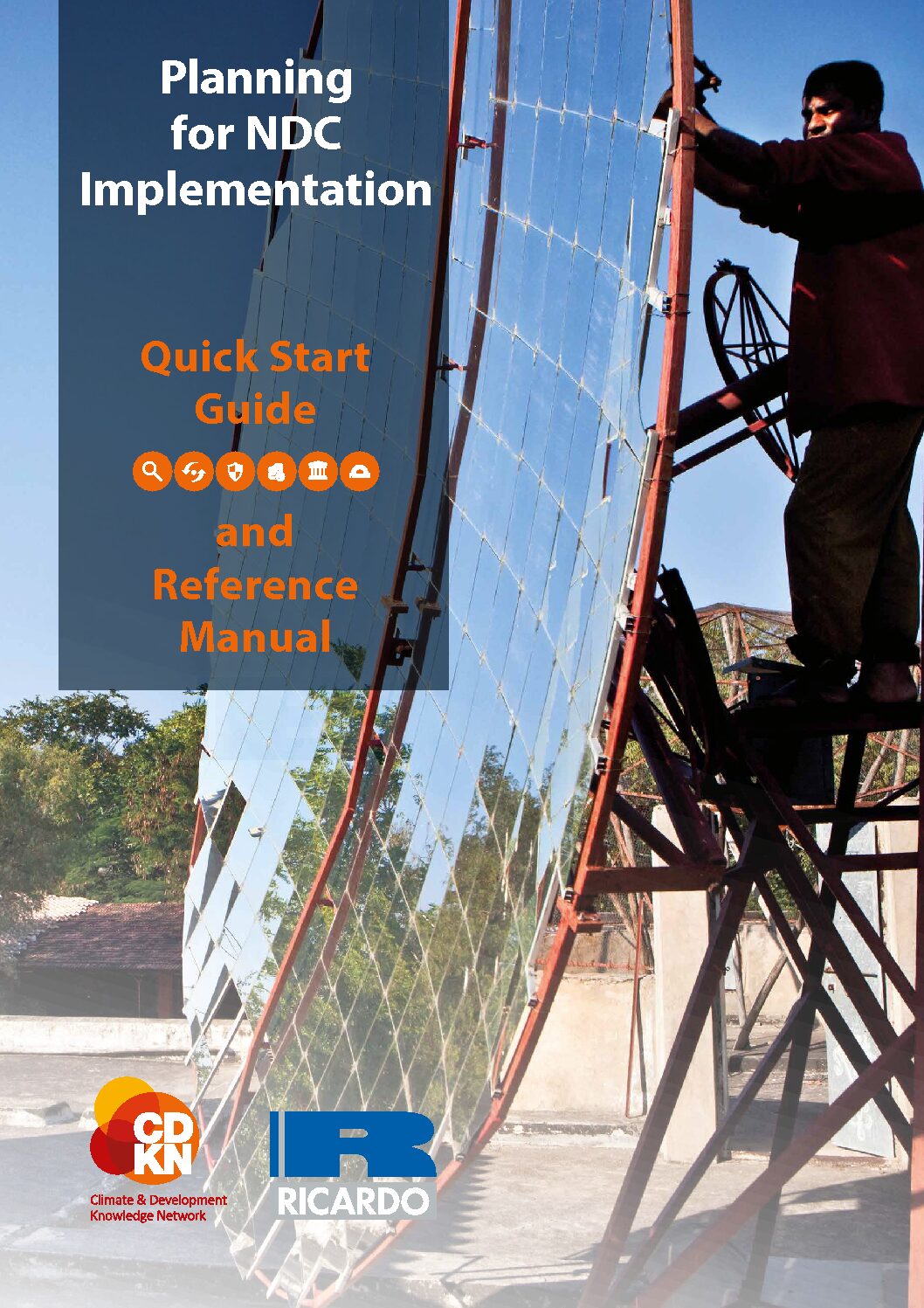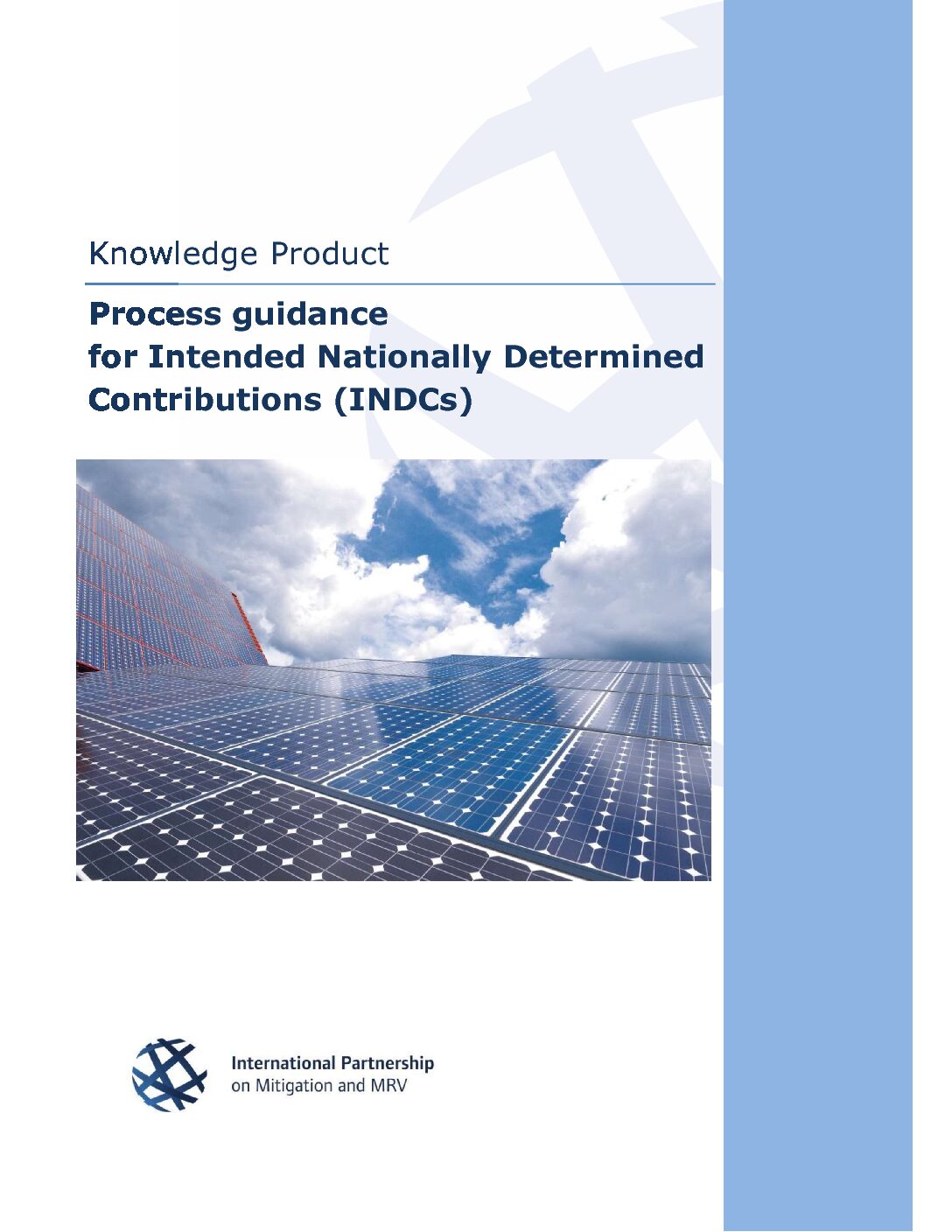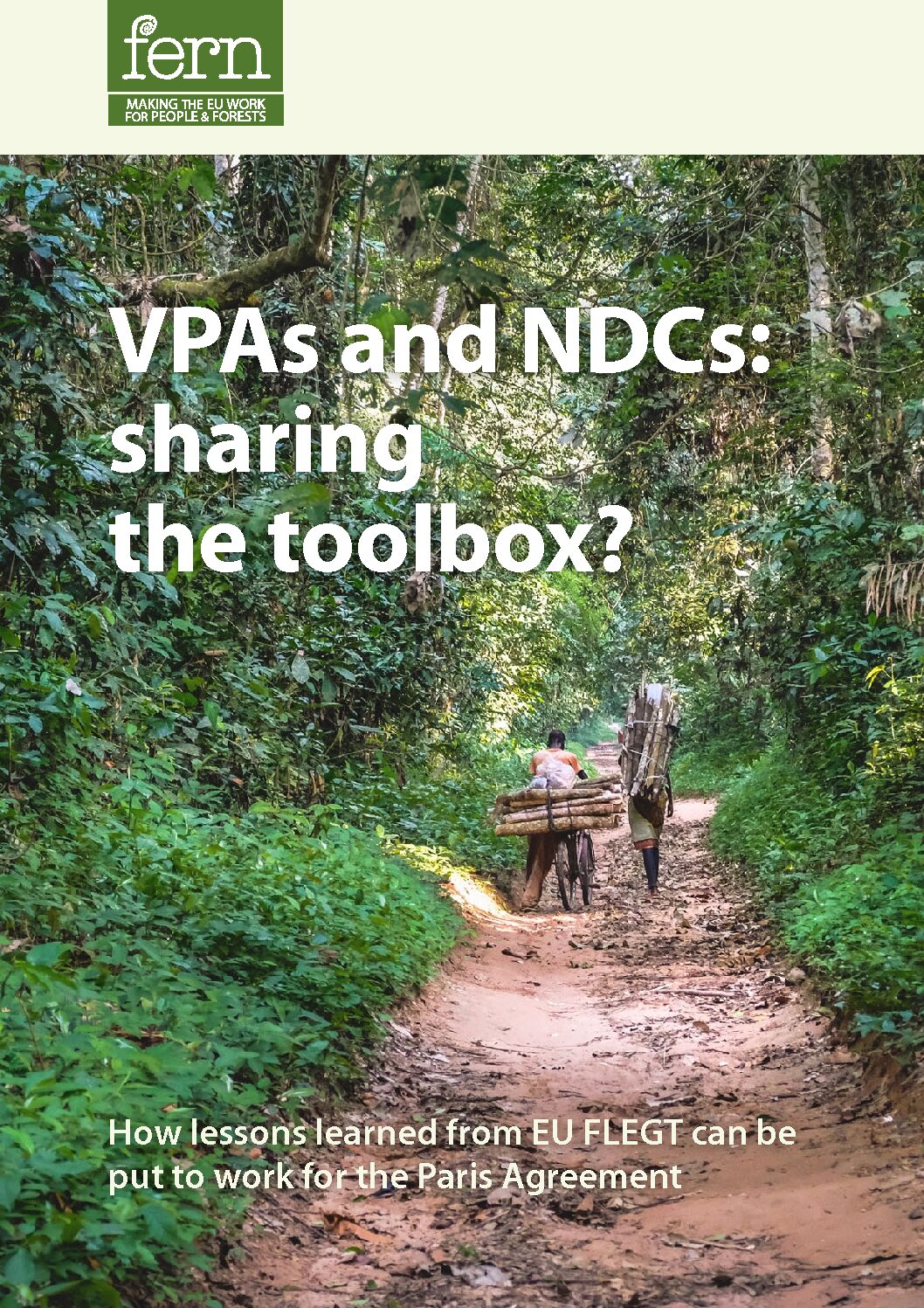Civil Society Resources
All stakeholders can play a role in helping develop national climate policies and programs that will lead to full implementation of the nationally determined contribution (NDC). The adoption of the Paris Agreement marked a significant shift in the recognition of the role of ‘non-Party stakeholders’ including civil society, have an important role to play.
- The Paris Climate Summit in 2015 put the spotlight on the climate actions taken by non-Party stakeholders and indicates to Parties the expectation of broad public involvement.
- The Marrakech Partnership for Global Climate Action in 2016 stressed that climate action by all stakeholders will be crucial for meeting Paris Agreement objectives.
- The Talanoa Call to Action released in December 2018 at the Katowice Climate Change Conference, insisted on the urgent and rapid mobilization of all stakeholders to step up their efforts to meet the goals of the Paris Agreement on climate change.
Most of the discussion in these platforms focus on stakeholder’s “own actions”, particularly at city and regional levels. Such actions are important, but they represent only part of the vital role of non-Party stakeholders in making Paris work. Non-Party stakeholders also have a key part to play in the design and monitoring of national policies for implementing the Paris Agreement. PeoplesNDC focuses on that opportunity.
Most countries that submitted their NDCs in 2015 committed to revising them in 2020. All countries will participate in a global stock take in 2023. This will enable them to be ready for the first the accounting period (or implementation period) which runs from 2021-2025. Civil society has a key role to play in ensuring that the NDCs review is robust, rooted in national priorities, and ‘ambitious’ as climate action.
Key Issues
CLARA believes that civil society and local communities must be involved in all efforts to address climate change. NGOs, religious groups, indigenous groups, cooperatives and unions – all are needed to drive transformational change. They need the space, capacity and resources to engage in the national NDC process.
Space
The first step therefore is to ensure that there is an appropriate mechanism to ensure inclusive and informed stakeholder participation in all phases of design, implementation and revision. Civil society groups can play a particularly important role to ensure alignment of climate action with national and sectoral development priorities. These must include respect for human rights, indigenous peoples’ rights and gender equality.
Capacity Building
Civil society can act as a credible stakeholder in national climate policy processes by demonstrating the technical and policy potential to enhance ambition. Civil society in most countries has significant capacity to develop implementation plans for climate mitigation and adaptation.
Countries are required to regularly and transparently report on their climate actions, including whether they have met or are on track to meet their NDCs. The Paris Rulebook addresses the types of information that developed countries and other countries providing support are to communicate, and a process for how this information will be considered and discussed.
Civil society groups need a good understanding of how national climate action defines what is in the NDC, and what the NDC overall is intended to achieve. Civil society can help make those connections, raising awareness about climate action, providing outreach to affected populations. Civil society can also reach out to media so that there is better public understanding of what’s at stake with climate action and the NDC.
Civil society groups should also explore and be given access opportunities for capacity building support at national, regional and international level. One way of doing so could be to forge alliances with relevant expert organizations and networks. Team-building tools on this site can help. See also:
CLARA member ACT Alliance developed a great guide to national climate advocacy:
We encourage all of our members and forums to make use of this Toolkit, not only for advocacy purposes, but also for capacity building and to facilitate internal discussions and reflections to ensure that specific national contexts are integrated into our global climate justice work.”
This is a very important resource for civil society groups, with information about how different national and international climate processes
Two guides aimed at national governments are also important resources for civil society. See the Climate & Development Knowledge Network’s (CDKN) guide to preparing effective NDC implementation plans:
This 2014 document from the Transparency Partnership provides ‘top-down’ guidance to including all economic sectors in climate action toward a stronger NDC.
Financial Resources
Civil society and community-based organisations need adequate financial support to influence and monitor the NDCs. Most developing countries seek international support for implementation of parts of their NDC — CSOs can reach out to their national governments to ensure that future financial support, from both domestic and international sources, is available for enhancing stakeholder engagement. Civil society and community groups should also explore funding opportunities from bilateral and multilateral donors, foundations and international NGOs, and piggyback on existing support. See Climate Finance.
Continued Engagement
Countries are supposed to update their NDC every five years, building ambition and deepening the commitment to climate action. Each round of NDCs should reflect a country’s most ambitious climate plans. Each commitment must build on the former strategies, and be stronger. The Paris Agreement also set up an expert committee focused on facilitating implementation and promoting compliance to help countries address barriers to implementation and further climate action.
At the global level, a periodic global ‘stocktake’ enables countries to understand whether they are on track to meet Paris Agreement goals. The first full global stocktake is in 2023. Civil society should note this important date as an opportunity to work toward improved implementation and enhanced climate action. Again, the Paris Agreement Implementing Decision provides good guidance for carrying out the plan-implement-review cycle of the Agreement.
Lessons From Other Processes
Independent evaluations and academic studies in the forest sector show civil society’s important role in the Voluntary Partnership Agreements (VPAs) that form a key part of the EU’s Forest Law Enforcement, Governance and Trade (FLEGT) Action Plan. This has led to more inclusive and accountable forest management. One of the VPAs’ unique features is that they allow a variety of actors – government, private sector, civil society and forest communities in some cases – to discuss how forests should be managed. They are the only trade agreements that use such an innovative approach and are therefore seen as a model for multi-stakeholder governance.
Besides being used as a vehicle to implement the NDCs, Nationally Appropriate Mitigation Actions (NAMAs) can provide valuable lessons for engagement of stakeholders in the process, particularly the public. Experience from NAMAs shows that engagement of civil society in all stages of the process has led to additional sustainability of (and co-benefits from) NAMAs, by increasing accountability, local ownership, and public acceptance of NAMA outcomes.
Further Resources — Civil Society Engagement and Advocacy
Working through strong and diverse coalitions allows CSOs and communities to share information and resources, form solid positions on climate policies and programs, and where possible speak with one voice. CSOs and community groups should talk to each other and do advocacy together.
http://www.ugandacoalition.or.ug/Final-Uganda-Civil-Society-NDC-Policy-Brief-October-2019.pdf
Library Resources
Civil Society Resources
- Marrakech Partnership
- Climate Advocacy Toolset
Capacity Building
- Quick Start Guide
- Process Guidance
Lessons From Other Processes
- Model for Multi-Stakeholder Governance



